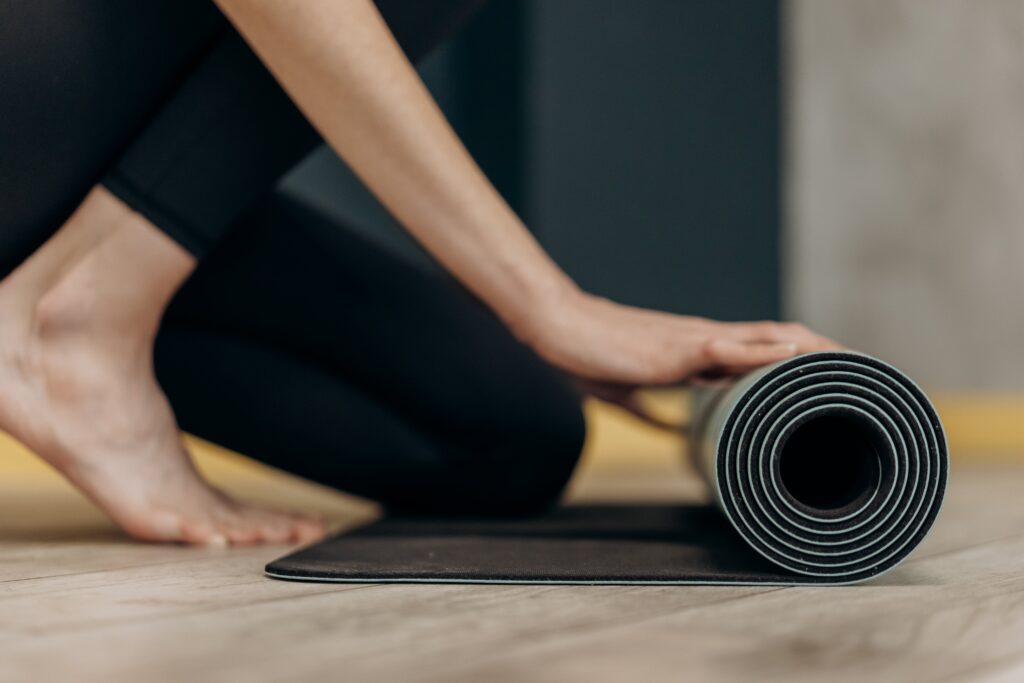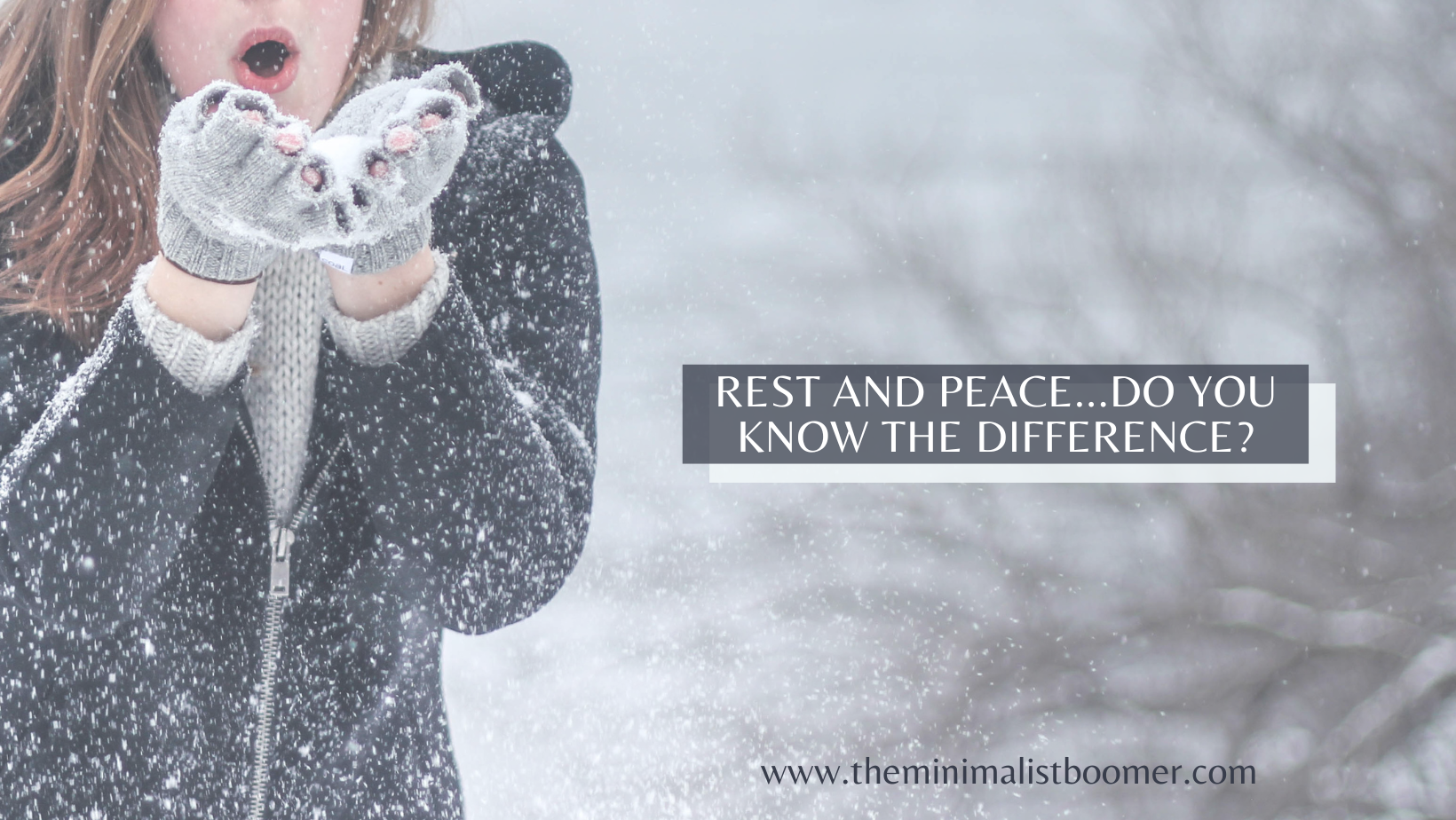Are you feeling exhausted and overwhelmed after this holiday season? We’ve all been there. In the midst of our busy lives, it’s essential to recognize when we’re simply in need of rest, and when what we truly crave is peace. Understanding the distinction between the two can significantly impact our well-being and productivity.
Understanding the Difference Between Rest and Peace
“Relaxation is not a destination, but a continuous journey towards self-discovery and inner peace.” – Deepak Chopra
Understanding the difference between rest and peace is essential for our overall well-being. When it comes to rest, both the physical and mental aspects play a crucial role. Physically, our bodies need time to recharge and recover from the demands of daily life. This entails getting enough sleep, allowing our muscles to relax, and giving our bodies a chance to recuperate. Mentally, rest involves taking a break from the constant stimulation of everyday tasks, allowing our minds to unwind and release the accumulated stress.
On the other hand, peace encompasses the emotional and spiritual aspects of our being. Emotionally, peace involves finding a sense of calm and contentment amidst life’s challenges. It’s about accepting our feelings and finding ways to soothe our inner turmoil. Spiritually, peace is about connecting with our inner selves, finding a sense of purpose, and aligning with our deeper beliefs and values. It’s the harmony that comes from feeling centered and connected to something greater than ourselves.
Signs That You Need Rest

Physical Exhaustion and Fatigue
Many times, our bodies give us subtle signs that we need rest. One of the most telling signs is physical exhaustion and fatigue. We may feel like our limbs are heavy, and simple movements such as walking or lifting objects become challenging. The overwhelming desire to sleep or constantly feeling drained despite adequate rest are common indicators that our bodies are crying out for a break.
Mental Fog and Lack of Focus
Another sign that we need rest is when we experience mental fog and lack of focus. It’s almost as if our brains are wrapped in a hazy fog, making it difficult to concentrate or complete tasks efficiently. If you find yourself struggling to remember simple details or unable to concentrate on a single task for an extended period, it could be a clear signal that your mind needs a rest.
It’s important to listen to our bodies and minds when they are crying out for rest. Acknowledging these signs and taking steps to address them can help us maintain overall well-being and productivity.
Signs That You Need Peace

Sometimes when we feel overwhelmed and exhausted, it might not just be tiredness taking a toll on us. Sometimes, it’s not just about needing rest, but finding peace within ourselves. Here are a few signs that indicate the need for peace:
Persistent Stress and Anxiety
If our minds are in a constant state of worry or unease, it’s a clear indication that what we truly need is peace. The relentless feeling of stress can lead to physical and emotional fatigue, making it essential to address this need for tranquility.
Emotional Turmoil and Inner Conflict
Sometimes, we find ourselves caught in a whirlwind of emotions, unable to find comfort within ourselves. This emotional upheaval and inner conflict point to the necessity of seeking peace. It’s crucial to take a step back, reflect, and find a way to settle our emotions.
Seeking peace isn’t just about finding a quiet place; it’s about reclaiming a sense of calm amidst the chaos. Recognizing these signs can be the first step toward achieving the peace that we truly need.
Methods for Finding Rest

Prioritizing Sleep and Relaxation
We all know how crucial sleep and relaxation are for our overall well-being. When we’re feeling worn out, catching up on sleep may be the best remedy. Set a schedule and stick to it, aiming for 7-9 hours of sleep each night. Creating a peaceful bedtime routine can signal to our bodies that it’s time to wind down. This could involve reading a book, taking a warm bath, or listening to soothing music. Dedicating time for relaxation activities can significantly impact the quality of our rest.
Practicing Mindfulness and Stress-Relief Techniques
Finding moments to be mindful can be a game-changer. Engaging in mindfulness practices, like deep breathing exercises, prayer, listening to music, or journaling can help us shift our focus from daily stressors to the present moment.
These methods for finding rest are instrumental in combating the weariness that often accompanies the hustle and bustle of daily life. By prioritizing sleep and relaxation and incorporating mindfulness and stress-relief techniques into our routine, we can create a greater sense of peace and rejuvenation.
Strategies for Cultivating Peace

Establishing Boundaries and Setting Aside “Me Time”
One strategy for finding peace involves establishing boundaries and setting aside “me time.” This means learning to say no to things that drain our energy and setting aside time for activities that rejuvenate our spirits. By doing so, we create a sanctuary for ourselves where we can refresh and recharge.
Balancing Rest and Peace in Daily Life

Recognizing the Need for Both Rest and Peace
We recognize the need for rest when our bodies feel fatigued, and our minds are weary. It’s the time when our energy levels are depleted, and our productivity wanes. On the other hand, the need for peace arises when our minds are cluttered with worries and stress, and we long for tranquility and calmness. Both rest and peace are essential for rejuvenating our bodies and minds and maintaining a sense of balance in our lives.
Incorporating Restful Activities and Peaceful Moments

Incorporating restful activities such as taking short naps, engaging in leisurely walks, or simply sitting quietly for a few minutes can help replenish our energy levels and provide the rest our bodies require. Similarly, finding peaceful moments through prayer, spending time in nature, or indulging in activities that bring us joy can offer the peace our minds need. It’s important to prioritize these activities in our daily routine to maintain a healthy balance between rest and peace.
By recognizing the need for both rest and peace and incorporating restful activities and peaceful moments into our daily lives, we can achieve the balance that contributes to our overall well-being and fulfillment.

